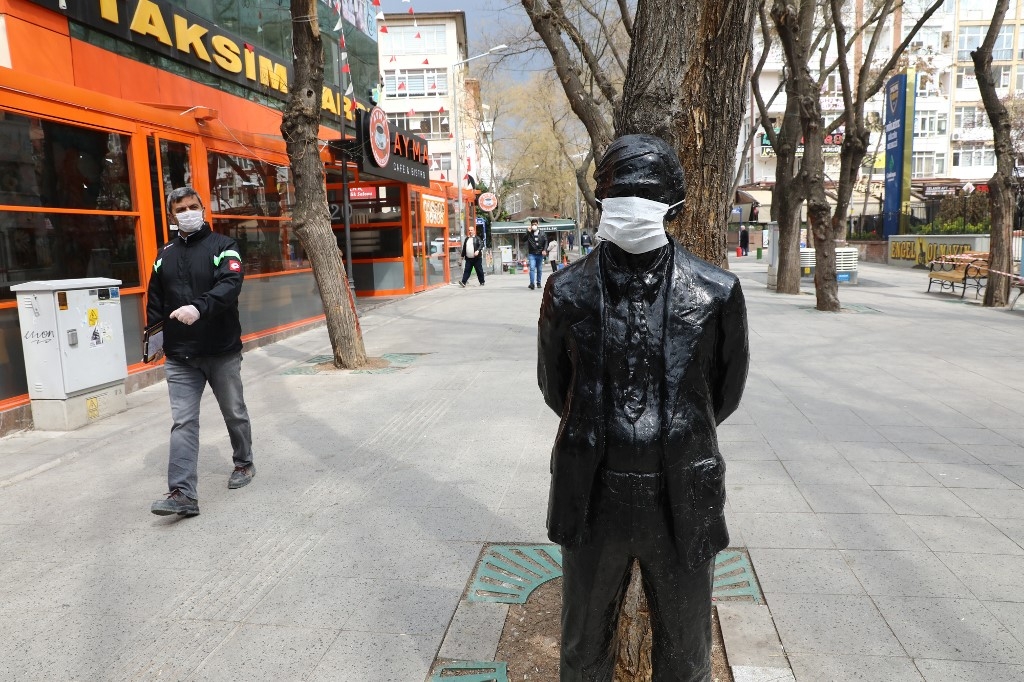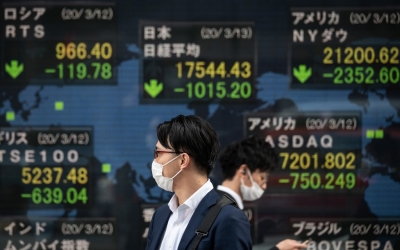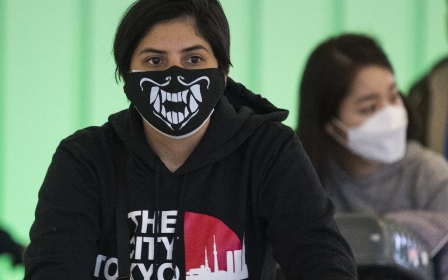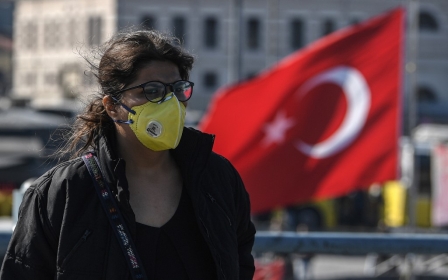Coronavirus: Why conspiracy theories have taken root in Turkey

Since the outbreak of coronavirus, conspiracy theories have been spreading everywhere, including in Turkey, as fast as the global spread of the virus itself.
The lack of definitive information about the origins and evolution of this untraditional enemy, along with a lack of transparency from several governments around the world - especially in the place where the virus originated - have created a perfect environment for such theories to flourish.
During times of uncertainty, social media becomes a fertile breeding ground for conspiracy theories. As with the virus itself, no state is immune, although some are less resistant than others. For several reasons, Turkey is considered one of the most vulnerable in this regard.
Wide range of society
According to researchers at Symantec’s Norton division, in 2016, Turkey had the most “bot” infections across Europe, the Middle East and Africa. A 2018 Reuters Institute report also showed that it was among the top countries exposed to misinformation.
New MEE newsletter: Jerusalem Dispatch
Sign up to get the latest insights and analysis on Israel-Palestine, alongside Turkey Unpacked and other MEE newsletters
For ideological and/or political reasons, analysts often reduce conspiracy theory phenomena in Turkey to ultra-religious conservative circles. Last week, columnist Burak Bekdil wrote an article for the Israeli Begin-Sadat Center for Strategic Studies to ridicule how some conservatives in Turkey were perceiving the coronavirus issue. The Jerusalem Post published a report featuring cherry-picked quotes to serve the same purpose.
The most serious conspiracy theory in Turkey right now suggests the virus was created in a laboratory by the US government, to be used against a rising China
A careful observation of Turkish social media and media outlets, however, shows that the phenomenon surpasses this limited segment of people, extending to a much wider range of society, including seculars on both the left and right sides of the spectrum.
Strategist Abdullah Ciftci has said that the epidemic was designed by a “superior mind” to control people and money, and to smooth the transition into the digital age. He recently appeared on CNN Turk and Halk TV - affiliated with the centre-left opposition party, CHP - to suggest that the spread of the virus was intentional, and that one of its goals was to implant a biometric chip in people because “the easiest way to achieve this is to spread a virus”.
The most serious conspiracy theory in Turkey right now suggests the virus was created in a laboratory by the US government, to be used against a rising China. This connects current events with the ongoing trade war between Washington and Beijing, and is dangerous mainly for two key reasons.
Rooted in Russian propaganda
Firstly, it has roots in the notorious Russian propaganda that uses disinformation to achieve political goals. The term was coined during the Soviet era and was considered to be one of the most essential components of KGB doctrine. As the heir to the Soviet Union, Russia has continued to use disinformation efficiently, making it an integral part of its hybrid war strategy.
In October 2018, Russia’s defence ministry said the US appeared to be running a clandestine biological weapons lab in the country of Georgia, allegedly flouting international conventions and posing a direct security threat to Russia. Major General Igor Kirillov, the head of the Russian military’s radiation, chemical and biological protection troops, alleged at a briefing that it was part of a network of US labs near Russia and China.
Amid the current coronavirus outbreak, Moscow launched a similar disinformation campaign: at the end of January, a Russian news outlet funded by the defence ministry, Zvezda, published an article claiming that coronavirus was biological warfare against Russia and China. It even alleged that the US was developing ethnic bio-weapons to target Russian and Chinese people.
Secondly, this conspiracy theory has an audience on both the left and the right of the spectrum, especially among ultra-nationalist and ultra-leftist seculars. News site Son Dakika recently polled its 160,000 Instagram followers to ask: “Do you believe the virus was made in a laboratory and leaked to make the Chinese economy collapse?” Three-quarters of the respondents answered yes.
Defending China
One reason why Russian and Chinese disinformation can gain traction in Turkey is the Eurasianist ideology, which borrows elements from Kemalism, nationalism, socialism and secularism. Eurasianism calls for strengthening relations with Russia and China, and with Iran, on the basis of anti-US imperialism and anti-Zionism.
The current godfather of the Eurasianism ideology in Turkey is Dogu Perincek. In December 2019, he slammed a US bill condemning gross human rights violations against ethnic Turkic Muslims in China’s Xinjiang province, describing it as “imperialistic interference” in China’s domestic affairs and a violation of international law and ethics.
In an interview in February, Perincek praised China’s swift actions to protect its people against coronavirus, adding that China’s struggle was “setting an example for all humanity”. He accused Western countries and their media outlets of conspiring against China and attempting to defame it, but added that China had managed to thwart these attempts.
On 12 March, Zhao Lijian, a Chinese foreign ministry spokesperson, pushed a conspiracy theory that the US army had brought the epidemic to Wuhan. This conspiracy theory suggests that US athletes participating in the 7th Military World Games that were held in Wuhan in October 2019 brought the virus. Lijian also didn’t hesitate to promote an article on the topic published by a conspiracy theory website.
A tempting twist
The geopolitical twist is very tempting for many conspiracy theorists in Turkey. Sozcu, a secular, top-selling, anti-government newspaper, has published many stories on the pandemic. Columnist Soner Yalcin, a well-known writer with more than 1.6 million Twitter followers, has repeatedly addressed the topic. In a recent article, he referenced Lijian’s tweets.
Yalcin suggested that the official’s statement confirmed his previous conclusions, and even cited a possible link to 5G technology and the trade conflict between China and the US. He called those who accuse him of being a conspiracy theorist “conspiracy theory viruses”.
Unfortunately, allowing such conspiracy theories to spread will have severe impacts. It could complicate the struggle against the virus itself, poison and weaken society, and create confusion, raising questions about the responsibility of journalists, media outlets, social media platforms and the government to counter such theories.
The views expressed in this article belong to the author and do not necessarily reflect the editorial policy of Middle East Eye.
Middle East Eye delivers independent and unrivalled coverage and analysis of the Middle East, North Africa and beyond. To learn more about republishing this content and the associated fees, please fill out this form. More about MEE can be found here.







